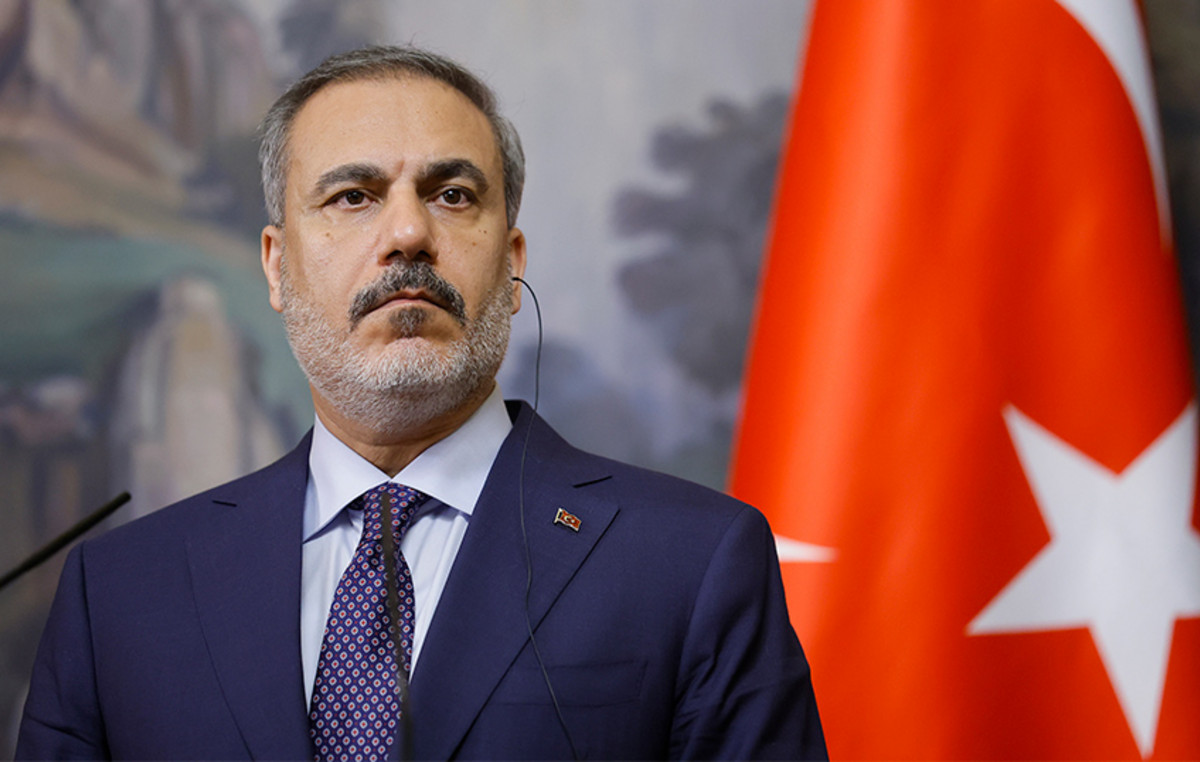“Women and dry fish need to be beaten every three days to have better flavor”-this was an old common saying in South Korea in the 1960s, when Choi Mal-Ja grew in a small town in the southeast of the country. At that time, male violence against women was widely accepted. Then, when Choi drew with a bite part of the tongue of a man who allegedly tried to rape her, it was she who was labeled as an aggressor and trapped by severe bodily injury.
At the time, Choi was 18 years old and lived at home with his family. Now, at age 78, she is trying to clean her name in the hope of paving the way for other victims of sexual crime in South Korea, one of the most advanced economies in the world, but where society remains deeply patriarchal.
After Choi’s new trial was rejected by the courts of the city of Busan, she took her case to the Supreme Court. The Superior Court ruled in its favor, returning the case to Busan, where the evidence will be analyzed in the coming months. Experts say the verdict can change the legal precedent established in its original judgment, with long -reach consequences for other women.
“The court must admit the fact that its unfair decision has become the life of a person upside down and take responsibility for a fair trial now,” Choi wrote.
“As if I had taken a hammer on my head”
On a 1964 spring night, Choi, then a teenager, stopped to help a man who asked for information in Gimhae, Province of South Gyeongsang. After walking with him for a few meters, Choi gave more instructions and turned to return home, but he knocked her on the floor.
“I was feeling dizzy, as if I had taken a hammer on my head,” Choi said to a local TV show in 2020. Choi lost his conscience for a brief moment, but remembers that the man climbed on her and tried to force his tongue inside his mouth. She only managed to escape biting 1.5 cm from his tongue, she said.
More than two weeks later, the man, who is not named in court documents, and his friends broke into Choi’s house and threatened to kill his father for what she had done. Ignoring his allegations of sexual aggression, the man sued for serious bodily injury, leading him to sue him for attempted rape, invasion of property and intimidation.
Police considered reasonable argument of Choi’s self -defense; However, promoters in Busan thought differently. They filed the accusation of attempted rape against their aggressor and accused Choi of serious personal injury, according to court documents.

In 1965, Choi was sentenced to 10 months in prison and two years in parole, a more severe punishment than that of the aggressor, who was sentenced to six months in prison and a year of parole for invasion and threats.
“It was not long before the victim of a sexual crime became a perpetrator, nor did the strength of many people need,” Choi wrote in a letter to the Supreme Court last year as part of his new trial request.
Choi also claimed that her rights were violated during the investigation and trial process, during which she and her supporters say she was handcuffed and later underwent a test to prove her virginity, whose result was made public.
Term “domestic violence” did not exist
Until recent times, the social norm in South Korea was for women to support men in their family. For example, when the country was developing quickly after the 1950-53 Korean War, daughters were commonly sent to work in factories to financially support their brothers’ education.
“The role of women was perceived as bricks that established the basis in society (for men), instead of a subject of love, so society of the time did not think of women’s rights when it was sexual violence,” said Chung Chin-Sung, Professor Emerita at the Department of Sociology at the National University of Seoul, CNN .
And until the 1980s, South Korea was so focused on reconstruction after the devastation of the war and the brutal previous Japanese occupation that fighting for women’s rights was considered “a luxury,” according to Chung. In 1983, the Korea Women’s Hot-Line counseling center was inaugurated to campaign against “all institutions, customs and conventions that impose inhuman lives on women” and establish a “fair and peaceful family and society.”

At that time, the language did not have a word for “domestic violence.”
“Physical abuse and sexual aggression against women were so common that there were no words to define such actions,” Kim Su-Jong, director of the center, told CNN . “This was in the 1980s. So imagine what Choi Mal-Ja had to pass in your case in the 1960s,” said Kim.
According to the statements of Choi, prosecutors and judges asked her during the investigation and the trial if she would like to marry the aggressor to close the case. Becoming his wife, according to the theory, could compensate for her injuries, as no other woman would want to marry a man with half tongue.
Wang Mi-Yang, president of the Korea Women’s Association, said the 1965 decision reflected “social prejudice and distorted views on victims of sexual violence that remained deeply rooted in our society.”
“The social environment of the time probably caused the prosecutors to be on the side of man, and I believe the concept of sexual violence probably did not exist,” Wang told the CNN .
Closing decades of silence
The movements against sexual violence flourished in the 1990s and even included campaigns seeking justice for “women of comfort”, an euphemism for victims of sexual slavery imposed by the Japanese army in Korea during and before World War II. For many years, “women of comfort” have kept their trauma secret to avoid shame and humiliation, but finally came to the public, becoming what Chung calls “the first movement of South Korea.”
“These people lived 70 years without being able to talk about what they went through, because they would be guilty … But the fact that they reveal themselves to the world means that society has changed a lot,” said Chung.
The #Metoo Global Movement established itself in South Korea in 2018, blaming powerful men and pressuring the government to impose more severe punishments for crimes of sexual violence.
Attitude changes motivated Choi Mal-JA to seek a new judgment.
“The girl’s life, who couldn’t even flourish, was forever unfair and resentful… The country must compensate for my human rights,” Choi wrote in his letter to the Supreme Court.
Kim, from the Korea Women’s Hot-Line counseling, said that although there is still work to be done, attitudes towards victims of sexual violence have changed dramatically.
“The perception that sexual aggressor is the culprit, not the victim, that women are more vulnerable to sexual crimes, and that it is the government’s responsibility to punish the perpetrator and protect the victim is now widespread among people,” she said.
Protests in Solidarity
With the help of the Korea Women’s Hot-Line, Choi requested a new trial by 2020, but the court denied his request, calling the original decision “inevitable” due to the “circumstances of the time.”
“I was so tired, having traveled such a long way that I wanted to leave everything behind,” she wrote in her letter last year to the Supreme Court.
Choi condemned this decision as “truly shameful.”

“I was so tired, after having traveled a long way that I wanted to drop everything,” she wrote in her last year’s letter to the Supreme Court.
But she persisted, thinking about the “women of future generations.”
A petition from the Korea Women’s Hot-Line gathered more than 15,000 signatures, and Choi began a protest in front of the Supreme Court for a month to press the court to annul the original decision to deny a new trial. In total, 42 people, including Choi, participated, taking turns after each day of protest, to show their solidarity with their cause.
The Supreme Court granted his request, calling Choi’s statements about unfair treatment during the investigation by the promoters of “consistent” and “believable”, adding that there was no evidence that contradicted his allegations.
“Every drop of water pierced the rock. When I heard the news, I shouted alive!” Choi said at a press conference broadcast after the Supreme Court’s decision in December.
The new trial will be made at the Busan District Court, which originally rejected Choi’s request in 2021.
Self -defense
Choi’s long struggle for justice is well known in South Korea.
Your case is even cited in the textbook of the Criminal Procedure Law – used to educate generations of law students – as an example of excessive use of force in defense.
A new successful trial could expand the definition of self-defense and establish new protections for future victims of sexual violence, Kirea Women’s Hot-Line said. “I believe this will become a very important case for women’s rights to defense and their responses against domestic or sexual violence to be recognized more broadly,” she said.
In 2017, a woman was considered guilty of serious bodily injury, just as Choi, for biting the language of a man who allegedly tried to rape her. The Intemon District Court partially recognized the man’s fault, but sentenced his wife to six months in prison and two years in parcel, citing the severity of the injury and “the failure to reach an agreement.”

Kim reports that there is a perception between investigators and courts that victims are responsible for sexual violence, particularly in cases where “the victim goes to the aggressor’s house, if they drink together or go to a place where they are alone.”
According to police statistics, more than 22,000 rapes and sexual assaults occurred in 2023 in South Korea. Kim states that there are still “many cases where women’s right to defend is not recognized.”
In her letter to the Supreme Court, Choi said old beliefs that blame the victim should change so that women’s rights improve in South Korea. “I believe women can only protect themselves from sexual abuse and create a world without sexual violence when the court rewrite arguably and abuser, recognizing legitimate defense and changing the outdated law,” she wrote.
This content was originally published in South Korea: 78 -year -old woman fights justice in case of sexual abuse on CNN Brazil.
Source: CNN Brasil
Bruce Belcher is a seasoned author with over 5 years of experience in world news. He writes for online news websites and provides in-depth analysis on the world stock market. Bruce is known for his insightful perspectives and commitment to keeping the public informed.







